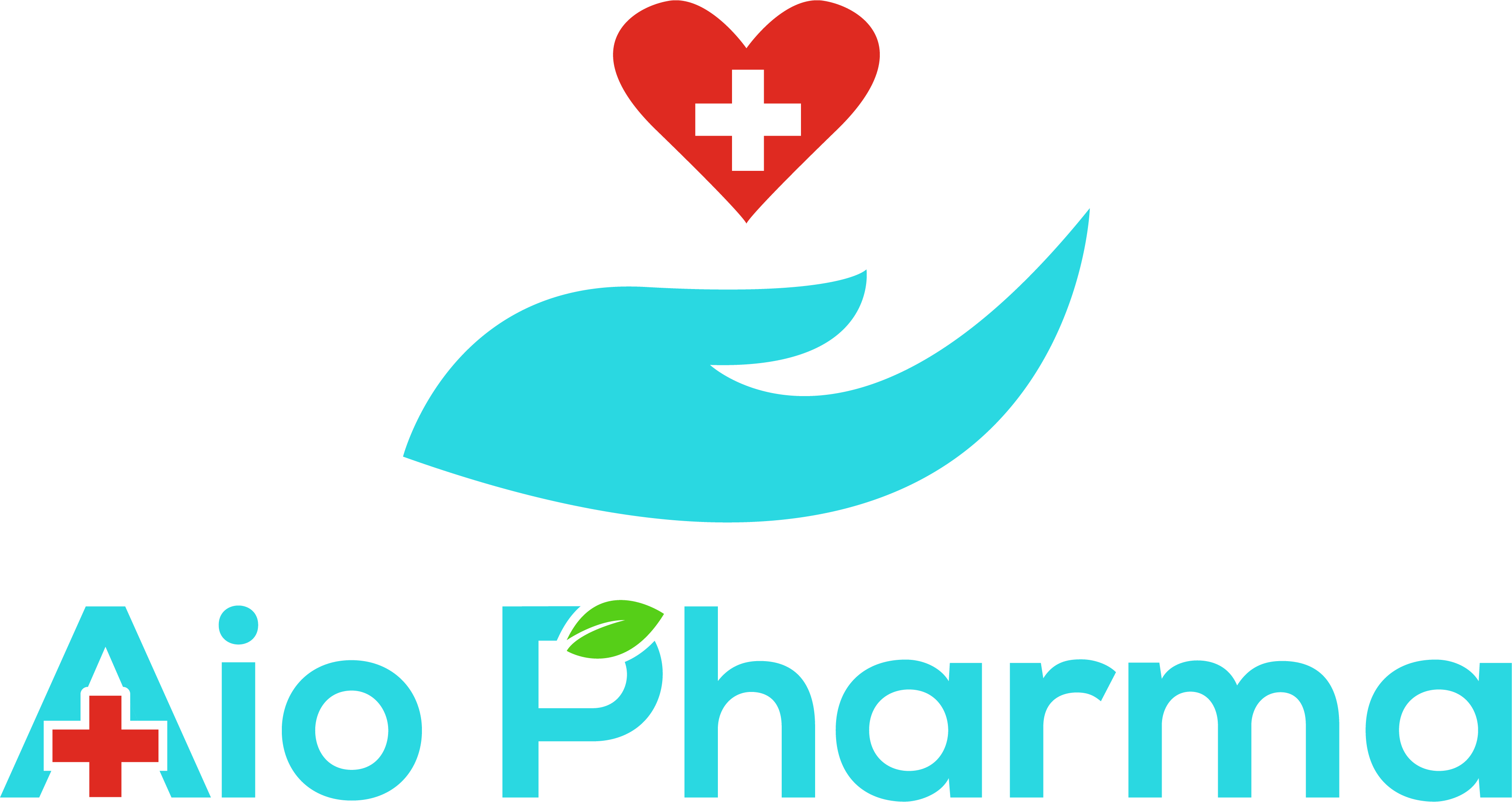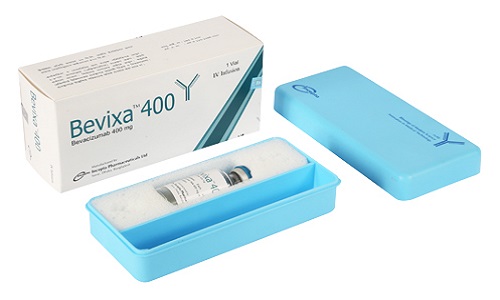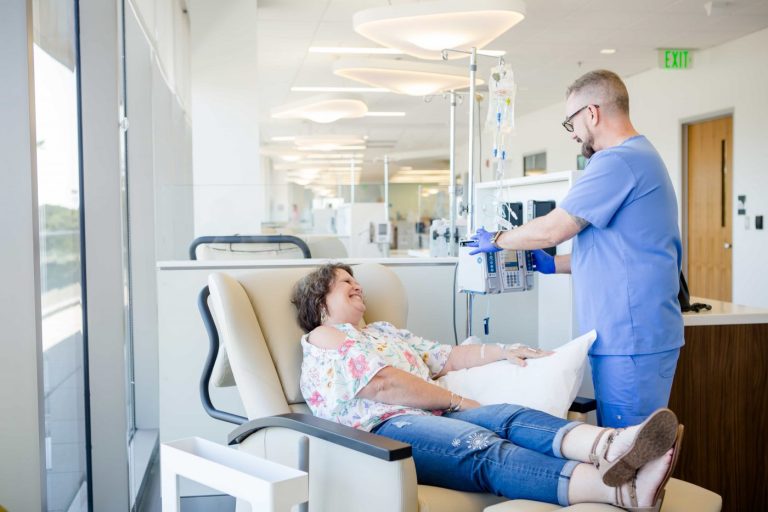WhatsApp, WeChat & Telegram : +8801886229488, Email : aiopharma@outlook.com
Bevacizumab: A Revolutionary Drug in the Fight Against Cancer
In the relentless battle against cancer, Bevacizumab (Avastin®) emerges as a beacon of hope, offering a lifeline to patients facing formidable foes. This innovative medication, a recombinant humanized monoclonal antibody, targets vascular endothelial growth factor (VEGF). This protein plays a pivotal role in tumor growth and angiogenesis (forming new blood vessels). By thwarting VEGF’s actions, Bevacizumab disrupts the tumor’s blood supply, starving it of the nourishment it needs to thrive and spread.
A Broad Spectrum of Efficacy
Bevacizumab’s therapeutic prowess extends across a spectrum of malignancies, including metastatic colorectal cancer, non-small cell lung cancer, breast cancer, ovarian cancer, and glioblastoma. In these settings, Bevacizumab has demonstrated remarkable efficacy, prolonging survival, extending progression-free intervals, and improving the overall quality of life for countless patients.
Synergy with Chemotherapy
Beyond its direct anti-tumor effects, Bevacizumab also exhibits remarkable synergy with various chemotherapeutic regimens, amplifying their effectiveness and extending their reach. This synergistic interplay has revolutionized cancer treatment paradigms, offering new avenues for hope and healing.
A Valuable Research Tool
Bevacizumab’s versatility extends beyond its therapeutic applications. It also serves as a valuable tool in cancer research, providing insights into the intricate mechanisms of tumor growth and angiogenesis. These insights are fueling the development of novel therapeutic strategies, paving the way for even more effective cancer treatments.
A Testament to Innovation
As the fight against cancer continues, Bevacizumab stands as a testament to the power of scientific innovation. Its remarkable efficacy and versatility have transformed cancer treatment landscapes, offering renewed hope to patients facing daunting diagnoses. With Bevacizumab as a cornerstone of modern oncology, the future holds the promise of a world where cancer no longer holds the upper hand.
How to Use Bevacizumab
Bevacizumab is administered as an intravenous infusion over 30-90 minutes. The dosage and schedule of administration depend on the type of cancer being treated and the patient’s overall health.
Dosage
The dosage of Bevacizumab varies depending on the type of cancer being treated. The most common dosage for metastatic colorectal cancer is 5 mg/kg of body weight given every 14 days. The most common dosage for non-small cell lung cancer is 15 mg/kg of body weight given every 21 days. The most common dosage for breast cancer is 15 mg/kg of body weight given every 21 days. The most common dosage for ovarian cancer is 15 mg/kg of body weight given every 21 days. The most common dosage for glioblastoma is 10 mg/kg of body weight given every 2 weeks.
Where to Get Bevacizumab
Bevacizumab is available by prescription only. It is typically administered in a hospital or cancer treatment center. Some pharmacies may also be able to dispense Bevacizumab. for order visit
FAQ
Q: What is the difference between Bevacizumab and Avastin?
A: Bevacizumab and Avastin are the same drug. Avastin is the brand name of Bevacizumab.
Q: How effective is Bevacizumab?
A: Bevacizumab has been shown to be effective in the treatment of several types of cancer. In clinical trials, Bevacizumab has been shown to improve survival rates, progression-free survival, and overall quality of life for patients with metastatic colorectal cancer, non-small cell lung cancer, breast cancer, ovarian cancer, and cervical cancer.
Q: Who should not take Bevacizumab?
A: Bevacizumab should not be taken by patients who have had a severe allergic reaction to Bevacizumab or any of the ingredients in Bevacizumab. Bevacizumab should also be used with caution in patients with certain medical conditions, such as high blood pressure, bleeding disorders, or a history of blood clots.
Q: What are the side effects of Bevacizumab?
The most common side effects of Bevacizumab are:
- Headache
- High blood pressure
- Fatigue
- Protein in the urine
Bevacizumab can also cause more serious side effects, including:
- Bleeding
- Infection
- Holes in the stomach or intestines
- Allergic reactions
A Testament to Innovation
As the fight against cancer continues, Bevacizumab stands as a testament to the power of scientific innovation. Its remarkable efficacy and versatility have transformed cancer treatment landscapes, offering renewed hope to patients facing daunting diagnoses. With Bevacizumab as a cornerstone of modern oncology, the future holds the promise of a world where cancer no longer has the upper hand.
In conclusion, Bevacizumab has emerged as a transformative force in the fight against cancer. Its ability to disrupt tumor growth, extend survival, and improve quality of life has made it an invaluable tool for oncologists and a beacon of hope for patients facing the challenges of cancer. As research continues to unlock the full potential of Bevacizumab and its synergistic partners, the future of cancer treatment looks increasingly promising.



